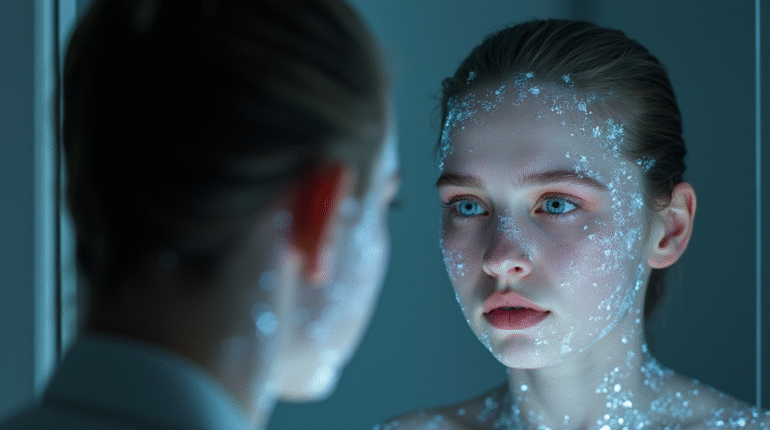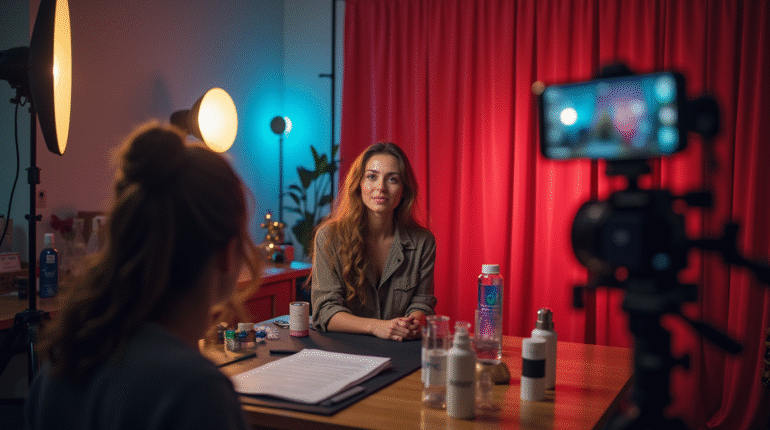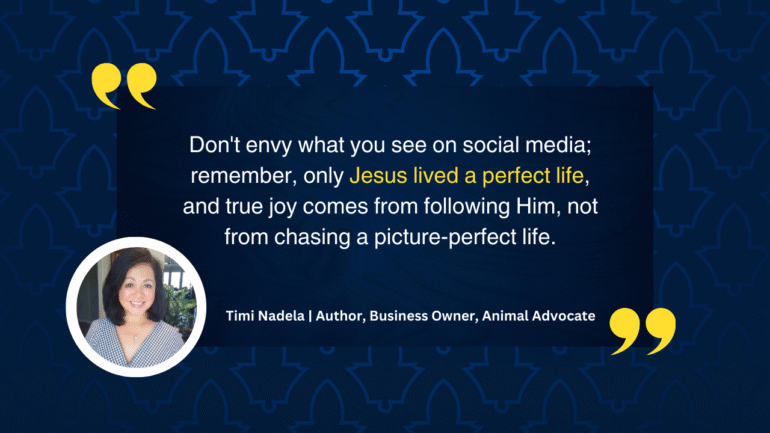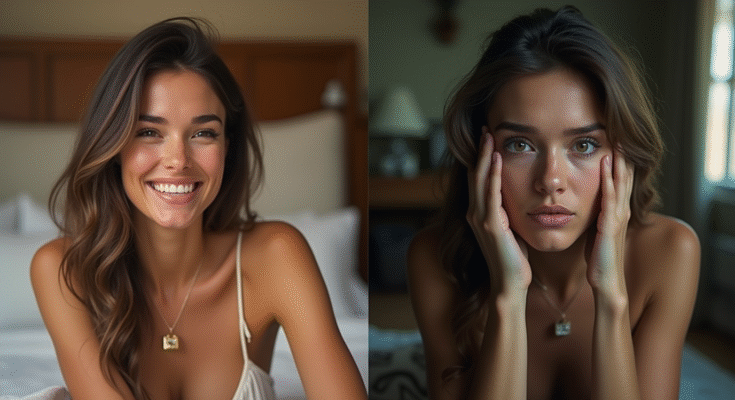Smile for the camera, but the truth is framed out of the picture. On Instagram, beauty is laboring over an effortless appearance; bodies are wrinkle-free and flawless, and lives are filled with travel, indulgence, and love. But behind the seemingly spontaneous snapshots is a discomforting truth: it’s a perfection we no longer aim for—an illusion so carefully, adoringly consumed every day.
And this illusion is affecting us more than we care to admit.
Hyperreality: When the Fake Feels More Real Than the Real
French philosopher Jean Baudrillard came up with the concept of “hyperreality,” in which a simulation or facsimile of reality usurps the “real” itself in both power and conviction. Welcome to Instagram. Filters and editing apps like Facetune and VSCO let users create a new digital self—one far more symmetrical, much slimmer, smoother, and sexier than their real-world self.

You know the look: big, dolly eyes; poreless skin; waists that seemingly vanish, and gravity-defying curves. It looks pretty from a distance but seems creepy once you zoom in.
Except the threat’s not just in the edit. It’s that we’ve stopped noticing it for years.
Chasing Dopamine: The Addiction Behind the Likes
Why would someone do something so trust-stretching as to alter their photos when it is such a known fact? The answer lies within your brain’s functionality.
According to specialists in mental health, the core player in all this is a certain dopamine aspect lobbed around frequently as the brain’s “reward chemical.” Every like, every comment, or every follow causes an incremental release of that dopamine, which then translates into fleeting satisfaction. The result? People always come back for “another fix.”
Dr. Emily Carter, Behavioural Psychologist, explains:
“Social media doesn’t just reward us with likes—it punishes us when we don’t get them. That’s what fuels the loop. If your unfiltered self doesn’t get attention, the filtered version will.”
This cycle can lead to obsessive behavior, low self-esteem, and anxiety rooted in online approval. In some cases, it feeds into deeper conditions like body dysmorphia or narcissistic traits.
Personal Is Fake, Business Is Famous: The Rise of the Influencer Economy
It’s not personal anymore, it’s business. A career built on aesthetics, editing according to trends or brands, and the amount of pressure to look “perfect” isn’t just social; it’s financial.

Sponsored posts, affiliate links, brand deals- all of these are things that rely on visibility and engagement. The prettier your page, the more profitable your life.
So, performance has replaced authenticity with having to perform. It’s not a vacation to the beach; it’s content. It’s not sipping morning coffee; it’s a prop. We are all actors now and live on a stage we have built for ourselves.
We’re all actors now, living on a stage we built ourselves.
What’s the Cost?
- Mental health: Numerous studies have already tied increased use of social media to increased levels of depression, especially among teenagers and young adults.
- Loss of trust: Viewers are increasingly cynical, unsure what is real and what is doctored.
- Cultural distortion: Unrealistic beauty standards have already been globalized, adding pressured to people across cultures to adhere to Eurocentric or digitally ‘enhanced’ ideals. And perhaps most tragically, we have learned to judge our lives by a lie
And perhaps most tragically, we’ve learned to judge our lives by a lie.
Healing the Digital Divide Within Ourselves
Awareness: The first step is noticing the distortion. Ask yourself—do these photos seem too perfect? Do I compare myself to them? Why?
Unfollow the façade: Curate your feed to include real people, body positivity influencers, unfiltered creators, and mental health advocates.

Limit screen time: Set boundaries around how long you scroll and how often you post.
Choose honesty: Be vulnerable. Share imperfect moments. Choose substance over aesthetics.



